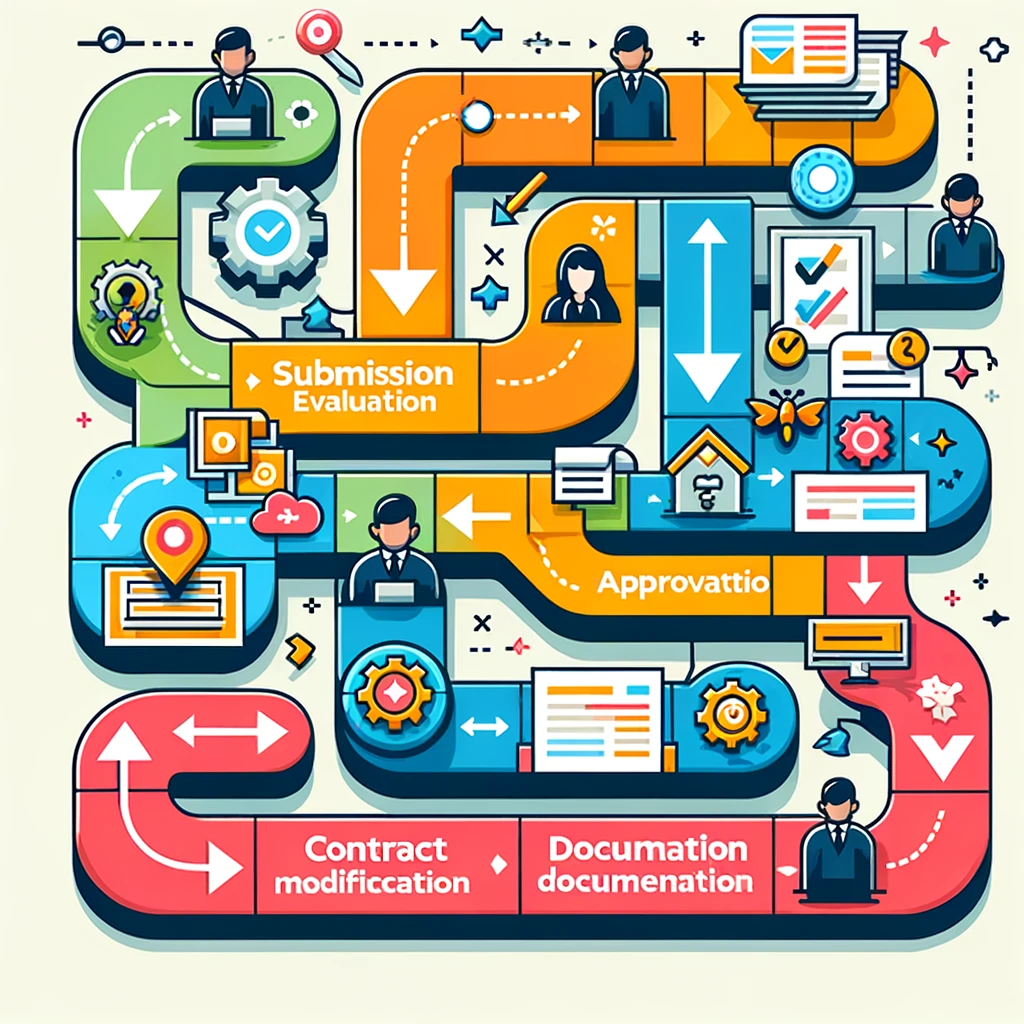
Introduction to Contract Change management
In the context of complex project management, contract change management represents a significant yet essential challenge for ensuring project success and profitability. Effective management of contract changes not only maintains the balance between stakeholders but also ensures that the project stays on track, meeting both the planned deadlines and budgets. This article explores best practices for managing contract changes, emphasizing the importance of using specialized tools and software.
What is a Contract Change?

A contract change is a mutual agreement between parties to alter the original terms of the contract. These changes may include adjustments to the scope of work, deadlines, costs, or any other significant element of the contract. The need for these changes can arise for various reasons, such as changes in legal requirements, unforeseen discoveries on the project site, or modification requests by the client.
The Impact of Changes on Projects
Without adequate management, contract changes can lead to budget overruns, delivery delays, and potentially conflicts between stakeholders. Proactive management of changes is therefore crucial to minimize risks and ensure that the project continues to progress in line with initial expectations.
Best Practices for Contract Change Management
Establishing Clear Procedures
It is essential to establish clear procedures for managing contract changes from the start of the project. These procedures should define how change requests are submitted, evaluated, approved, and documented.
Using Specialized Tools and Softwar

Tools like Oracle Primavera Cloud or Deltek can be extremely helpful in monitoring the impacts of changes on the project. These solutions offer planning, tracking, and reporting features that help to quickly assess the consequences of proposed changes on project costs and deadlines.
Transparent Communication
Open and transparent communication among all stakeholders is vital for effective change management. This means ensuring that all parties understand the implications of proposed changes and agree on the necessary adjustments.
Rigorous Documentation
Every change should be carefully documented, including the reasons for the change, its impact on the project, and the agreements reached between the parties. This documentation serves as a reference in case of future disagreements and helps maintain a clear history of the changes made to the contract.
Conclusion
Contract change management is a critical aspect of project management that requires special attention. By adopting the best practices described above and relying on specialized tools and software, project managers can minimize the risks associated with contract changes and ensure that projects remain aligned with their initial objectives. Effective change management is thus not only a guarantee of success for the current project but also an investment in the stability and reliability of the company’s future initiatives.





